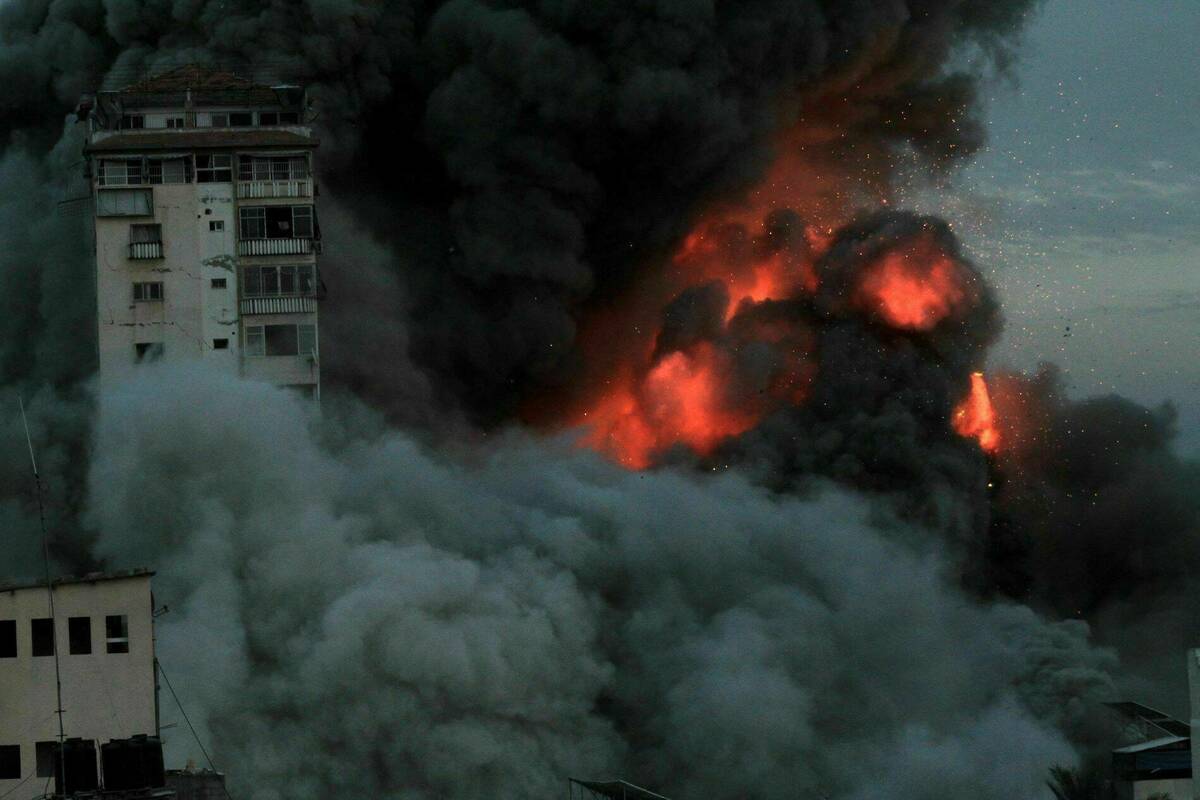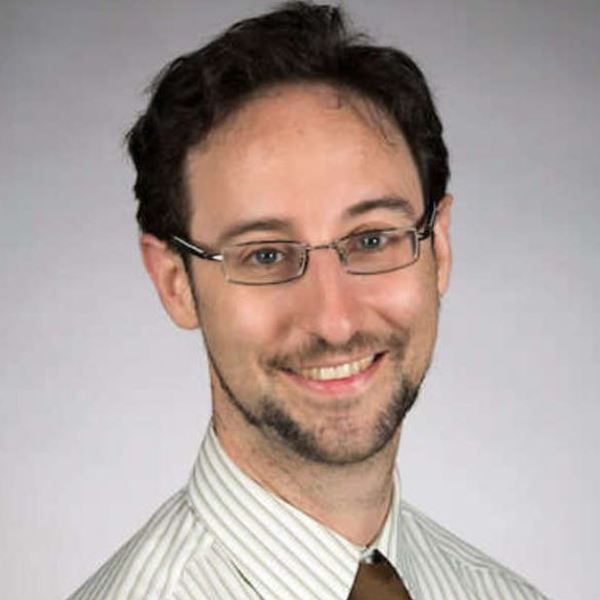On October 7 Hamas attacked the state of Israel, killing approximately 1200 people, mostly civilians. Whole families were slaughtered in their homes. Among the victims were hundreds of young adults at a music festival. The killings were accompanied in numerous cases by torture, disfigurement, and rape. Around 240 hostages were taken to Gaza, again, mainly civilians, including infants and great-grandparents. In the weeks since October 7, Israel has engaged in a war against Hamas. Thousands of non-combatant Gazans have been killed as a result of Israel’s aerial bombardment and its subsequent ground invasion. Among the casualties are a large number of children, as well as whole families (Exact casualty counts from Gaza are difficult to determine at this point for a variety of reasons).
In America, as elsewhere, the responses to these events have been wildly divergent, running the gamut from full-throated support for Israel’s response to justification of Hamas’s attack. Where should a faithful Catholic situate herself? Surely, she must pray for peace and healing, in this tragic arena as in others, but must she take a stance? Must she enter the fray, and if so, where?
I am Jewish, and one might object that, as a non-Catholic, I have no business raising or still less attempting to answer this question. In fact, the starting point for the answer lies precisely in the response to this objection. The great turn in the Church’s perspective on Jews and Judaism that began with Vatican II has set Catholics in relation to Jews. Pope Francis put it this way in his apostolic exhortation from 2013, Evangelii Gaudium, section 247:
We hold the Jewish people in special regard because their covenant with God has never been revoked, for “the gifts and the call of God are irrevocable” (Rom 11:29). The Church, which shares with Jews an important part of the sacred Scriptures, looks upon the people of the covenant and their faith as one of the sacred roots of her own Christian identity (cf. Rom 11:16-18). As Christians, we cannot consider Judaism as a foreign religion.
I am moved by this sentiment when I write here as a Jew.
What does it mean, at this troubled moment, for a Catholic to “hold the Jewish people in special regard”? To consider Judaism as in some sense a part of Catholicism? These commitments do not dictate specific policy positions in response to the crisis, but they do demand a certain posture toward it. Like some Jews, a Catholic, observing the alarming civilian casualty count in Gaza, might question the manner and scope of Israel’s response to Hamas’s attack. Turning to the broader context of the conflict, she might, like many Jews, condemn past Israeli decisions that have created obstacles to peace and fostered support for Hamas, that have embittered the lives of Palestinians and often taken them.
However, she will think through and articulate such critiques as an insider, as someone who takes herself to be in relation, as a Christian, with the Jewish people, as someone who recognizes herself to be bound, through the mysterious ways of God, to the offspring of Abraham. She will appreciate that, insofar as she is in relation with the Jewish people, she is also in relation to the state of Israel, not necessarily as a state, but as the home, in any case, to a majority of Jews now alive, as a haven for Jews fleeing antisemitism, and as by far the most important vehicle for collective Jewish action in the world today.
Let me unpack this claim with the aid of Michael Walzer’s carefully reasoned characterization of social criticism in his book, The Company of Critics.[1] Walzer argues that the good social critic—the critic who embodies the courage and moral authority that are the virtues of the practice of social criticism—measures out her critical distance in inches. That is to say, she does not detach herself from the society that she critiques, to look down upon it from an Olympian height, but illuminates and attacks its wrongs from a position of identification and engagement with it. The good social critic, for Walzer, does not dismiss her target as irredeemable; she knows it too well to demonize it. She writes from the recognition that, were such demonization in fact called for, she would herself have to fall silent. She critiques as a family member does: not quite behind closed doors, given that the public sphere that defines a society does not allow for this, but with what Walzer calls “a certain forbearance,” “especially when [her] own people are confronted by hostile forces.”[2]
Although the book consists of profiles of twentieth-century critics, Walzer traces the practice of social criticism back to the biblical prophets. When the prophets condemned Israel, they did so as Israelites, mourning and gnashing their teeth at the prospect of their people suffering God’s wrath. Paul’s anguished reflection on Israel’s rejection of Christ in Romans, chapters 9 through 11, stands in the same tradition. Paul begins by declaring the people of Israel as his own, and the discourse is riven by grief for their “no,” and bound together by hope for a future “yes.” These are not idle precedents in our context. One of the roots of the long tradition of Christian anti-Judaism is the misunderstanding of the biblical prophets as speaking from a position apart from Israel, in a gesture of outright rejection rather than of loving and hopeful rebuke. One of the major paths back toward the embrace of Jews and Judaism in the Church has been the recognition that Paul’s grief and hope in Romans 9-11 mark him as a Jew, and imply God’s continuing love for Israel even in their sins.
While a posture of identification with the Jewish people allows for a range of possible responses to the conflict, we can nevertheless spell out certain concrete implications. A Catholic who identifies with the Jewish people will mourn for the tragedy of October 7, a candidate for the worst day in the history of the Jewish people since the Holocaust. Every person of conscience is moved to comfort the mourners of this tragedy, but she will count herself among the mourners themselves.
She will also think very carefully, will pause and probe, before echoing accusations that make the state of Israel seem like a monster. She will appreciate that such accusations can be the product of antisemitism, and have the dangerous tendency to foster antisemitism. She will hear in these accusations the echoes of the Church’s own legacy of anti-Judaism. She will compare Israel’s deeds to those of her own nation, to ensure that she is not applying a double standard. If she ultimately endorses a particular accusation, or rather, necessarily, some more nuanced form of the accusation, she will do so not with a clarion call of righteous judgement, but in an anguished whisper of concern. And if she does not feel anguish, then she will know that she has not reflected deeply enough on her own subject position, that she has arrived at her conclusion too easily, too superficially.
One very often finds that Christians who critique the state of Israel do so by calling attention to the role of Christian Zionists in the emergence and realization of the Zionist vision, and in supporting the state of Israel today. It is indeed important to acknowledge the historical role of Christian supporters in furthering the cause of Zionism, and the colonialist framework within which some of them operated. It is fair to critique the shortcomings of Christian Zionist theology, especially its tendency to ignore Palestinian suffering and Israeli injustices. And it is understandable that a Catholic taking a position on Zionism will feel compelled to refute competing Christian approaches to the topic. But a Catholic who comes to the conflict from a posture of identification with the Jewish people will refrain from telling the story of Zionism in such a way that the principal actors are Christian Zionists. She will appreciate that the story of Zionism is chiefly a Jewish story, and that to tell it as a Christian story is supersessionist, in its way, and represents a cynical attempt to delegitimize Israel.
Her attachment to the Jewish people will not allow her to fall into the trap of dismissing Israel as just another instance of “settler colonialism.” She might acknowledge the influence of European settler-colonialist strategies within the early Zionist movement, and the continuing relevance of this paradigm for conceptualizing Israeli settlements in territories deemed occupied under international law. Yet, she will recognize that the age-old connection between the Jewish people and the land of Israel, as well as the historical status of Jews of the Diaspora as a persecuted minority rather than as an imperial power, make the application of the settler-colonial paradigm to Israel as a whole deeply imperfect.
As a person moved by religious convictions, she will be ever aware of the power of religious convictions to motivate others. Rejecting the prevalent tendency to reduce stated religious convictions to epiphenomena, she will see Hamas as the radical Islamist entity that it claims to be, impelled, as it claims to be, by the principle of holy war. Attuned to antisemitism, she will take seriously the fact that Hamas’s 1988 charter pulses with it, blaming Jews for, among other things, orchestrating the two world wars for personal gain. The 2017 declaration issued by Hamas explicitly identifies its enemy as Zionists, not Jews, but the Catholic who lives in relation with the Jewish people will be quick to observe that the same declaration characterizes Zionism as “anti-human.” It also describes Jerusalem as containing Muslim and Christian holy places, rejecting by implication the notion that Jerusalem is holy for Jews. Here, then, ultimately, is the same conspiratorial antisemitism, the same irrational hostility, as in the charter. She will be able to discern in the savagery of October 7 the expression not only of political resistance against a state, but of jihad waged against Jews. She will have no illusions about the sort of enemy that Israel faces in Hamas, and in other radical Islamist actors in the region.
I have noted that the fact that the trajectory of the Church since Vatican II puts Catholics in relation to the Jewish people does not mean that they cannot critique the actions of Israel. On the contrary, it enables them to do so in the manner of the good social critic, from the inside. Enables, and perhaps even obligates: Catholics should feel called, through this relationship, to be prepared to offer criticism when it is warranted. Would such criticism, originating from and accompanied by manifestations of a true sense of kinship, informed by the careful investigation that this kinship demands, and sensitive to past victimization and demonization of Jews by Christians, be received by Jews? I hope it would, and I think it might. The prophetic tradition that Jews share with Christians teaches us to be receptive to productive rebuke.
I think especially of the intersection of Judaism and power, and the great debate over how Judaism should form and be formed by a Jewish state. The Judaism that we know today coalesced in circumstances of exile and political powerlessness, so that the question of Judaism in a Jewish state is not simply a matter of returning to the Bible: It is a new question, now over a century old but still new and urgent.
Rabbi Abraham Isaac Kook, one of the founding figures of religious Zionism, suggested, in an essay published in 1921, soon after “the war to end all wars,” that the reemergence of the Jewish people into political life at just this moment, when war was coming to an end, signals the work of providence.
It is not meet for Jacob to engage in political life at a time when statehood requires bloody ruthlessness and demands a talent for evil. At the beginning of our history, we were granted only the foundation, the minimum that was necessary to establish a nation. After our race was weaned, our political sovereignty was destroyed, and we were dispersed among the peoples and sown in the depths of the soil, “till the time of singing is come, and the voice of the turtledove is heard in the land”[3] (The prooftext is from Song of Songs 2:12).
Kook’s vision was, of course, far too optimistic, and religious Jews who identify with Israel continue to grapple with the question of Judaism and power. Recently, a video circulated of two soldiers in full military gear, sitting on salon chairs amidst the rubble in Gaza.[4] In civilian life they are rabbis and teachers, and they have met to discuss the weekly Torah reading: the famous story of Jacob’s theft of Esau’s blessing. With his arms covered by goat hair so that he would appear like the hairy Esau, Jacob approached his father, the blind Isaac. Isaac, his suspicion evidently aroused by the voice of the person before him, felt his skin, and exclaimed in puzzlement: “The voice is the voice of Jacob, and the arms are the arms of Esau” (Genesis 27:22).
Traditionally, this verse has been understood to express the essence of Judaism: The imperial power—Esau, who is a figure for Rome, and by extension, for whatever foreign kingdoms rules over Israel—embraces violence, but Jacob’s power lies in his voice, in the sound of prayer and Torah study. The rabbis in this video assume this traditional opposition between violence and voice, but give it a novel and striking spin. Isaac, they suggest, knew that it was Jacob who stood before him, and in fact he wished from the outset to give the blessing to Jacob. But Isaac knew that Jacob would not be a fit heir until he was willing to take on the arms of Esau. Jacob would not be able to realize the blessing—God’s promise to Abraham of a nation and a land—unless he was prepared to fight for it with the arms of Esau.
I have seen a variety of responses to this video among Jewish acquaintances. Many affirm its teaching as a sad truth. Some who do so nevertheless think that the setting chosen for the video is in poor taste, as insufficiently sensitive to the suffering of innocent Gazans. Others are wary of the very notion of invoking religious claims to the land: Better to wage this war on the ground that it is morally necessary, as a response to the evil of Hamas, and to refrain from implicating Judaism in it.
I recall Rav Kook and this video and Jewish reactions to it as particularly relevant in this moment for the Catholic who recognizes herself to be in relation with the Jewish people. She will appreciate that religious Jews have long debated the question of Judaism and power in relation to the state of Israel, and continue to debate it. She will recognize that the terms of this debate are different for Judaism than for Christianity, because Judaism is different from Christianity, but she will nevertheless feel that, bound up as she is with the Jewish people, she has a stake in this debate, and that, guided by the subtle resources of her faith, she can even contribute to it.
[1] Michael Walzer, The Company of Critics: Social Criticism and Political Commitment in the Twentieth Century (New York: Basic Books 2002).
[2] Ibid., 151.
[3] Arthur Hertzberg, The Zionist Idea: A Historical Analysis and Reader (Philadelphia: The Jewish Publication Society, 1997), 422. On the complex compositional history of the essay from which this quotation is taken see Hanoch Ben-Pazi, “R. Abraham Isaac Kook and the Opening Passage of ‘The War,’” Journal of Jewish Thought and Philosophy 25 (2017), 256-78.
[4] https://www.youtube.com/watch?v=CZNasLKYpJU, accessed November 19, 2023.


